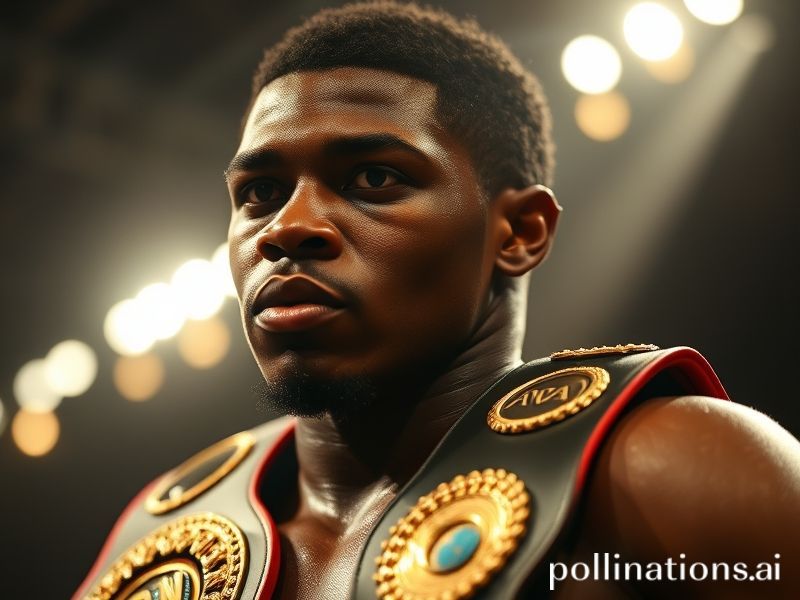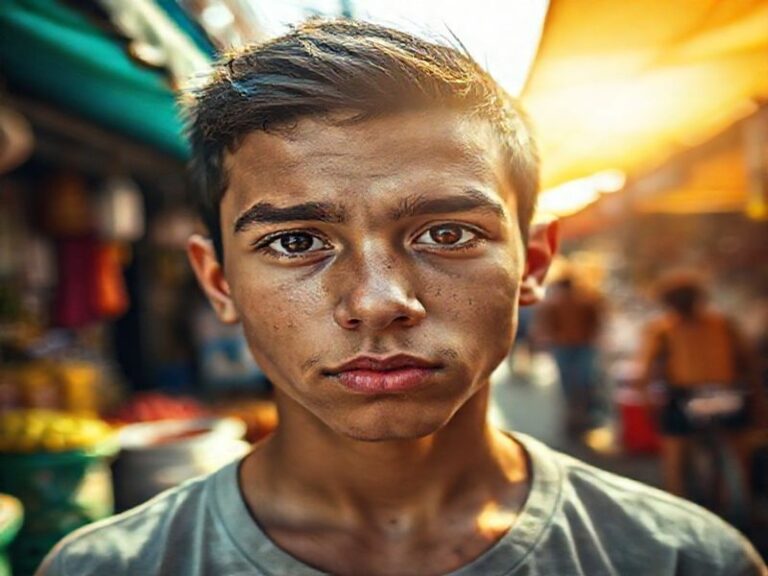Devin Haney: The World’s Most Polite Mercenary in an Age of Globalized Bruises
In the dingy backroom of a Tijuana sports bar—half-lit by a flickering neon “CERVEZA” sign and the glow of a cracked TV—old-timers still argue about whether Devin Haney is boxing’s last honest craftsman or merely the best-dressed accountant in a sport that long ago laundered its soul. The debate is academic everywhere except the betting window; there, the only currency that matters is the American dollar, now trading at 17.2 pesos, down from 19.1 last spring. Haney, meanwhile, trades in something far more volatile: the illusion of control in a world allergic to it.
From Dubai to Dakar, fight fans recognize the silhouette: rail-thin, immaculate cornrows, the sort of posture that suggests he irons his confidence nightly. At 25, Haney has already collected belts the way Instagram influencers collect passport stamps—rapidly, artfully, and with the suspicion that most of the stamps are fake. Yet the broader significance isn’t the hardware; it’s how seamlessly he fits into the global economy of curated excellence. In an era when a Kazakhstani knockout artist can become a Saudi Arabian billboard overnight, Haney is less a boxer than a transferable brand, equally at home on a Lagos billboard or a London pay-per-view.
Consider the geopolitics of his last “home” fight: an April showdown in Las Vegas that drew more Saudi money than Nevada tax revenue. The arena’s VIP section looked like a UN sanctions list—Emirati sheikhs, Russian fertilizer magnates, and at least one American hedge-fund vampire sipping $27 mocktails because Ramadan and rehab had collided on the calendar. Haney, ever the pragmatist, thanked them all in three languages, none of which included the phrase “human rights.” In boxing, as in oil futures, moral clarity is a currency too heavy to carry ringside.
The international press, ever hungry for a tidy narrative, has labeled Haney the “Mayweather Mini-Me,” a comparison as flattering as it is lethal. Floyd patented the art of turning zero-risk fights into maximum-profit morality plays; Haney seems intent on downloading the same software, albeit with fewer domestic-violence intermissions. The blueprint works—until it doesn’t. Ask the Ukrainians who once idolized Vasiliy Lomachenko how quickly geopolitics can re-edit a hero reel. Should Haney ever lose the 0 on his record, the algorithm will pivot faster than a Moscow sanctions package, and the same YouTubers currently hyping him will monetize his downfall with thumbnail tears.
Still, there is something almost quaint about Haney’s obsession with technical perfection in an age when fights are increasingly decided by meme-worthy knockouts or celebrity judges who think a jab is a new crypto coin. Watch him dissect an opponent—feint, shoulder roll, stutter step, exit at a 47-degree angle like a GPS recalculating—and you glimpse a man trying to impose Euclidean order on a sport that’s essentially a sanctioned bar fight with better branding. It’s the same impulse that drives European technocrats to draft another fiscal pact while Athens burns: the touching belief that mastery of detail can still save the project.
The cruel joke, of course, is that boxing no longer needs saving; it needs content. And Devin Haney—bilingual, telegenic, controversy-averse—is premium content. His next fight might be in Riyadh, Singapore, or, if the Saudis keep flooding the zone, on a floating barge off the coast of Monaco where gambling laws are as negotiable as the referee’s scorecards. Wherever it lands, the undercard will feature at least one influencer whose greatest punch comes in the form of a sponsored TikTok dance. Haney will pretend not to notice, collect his eight-figure guarantee, and fly first-class to the next time zone before the post-fight drug tests are even boxed up.
In the end, the global significance of Devin Haney isn’t that he can outbox the planet; it’s that he can outrun it. While governments default and glaciers calve, he remains an avatar of a simpler transaction: two fists, one zero, and the comforting delusion that skill still trumps entropy. Somewhere in that Tijuana bar, the neon finally gives up the ghost, and the old-timers switch to mescal. They toast the kid from Las Vegas who never bleeds, knowing full well that sooner or later, everyone bleeds. Until then, the house always wins—especially when the house is global capital wearing Everlast gloves.







